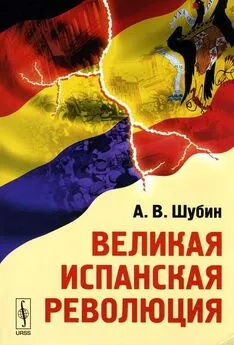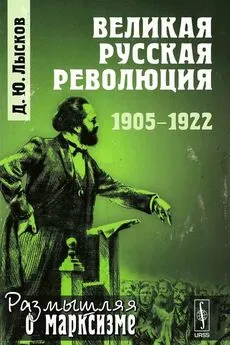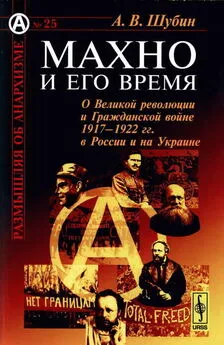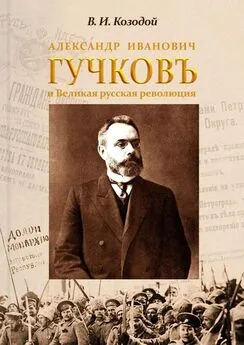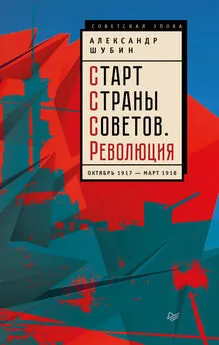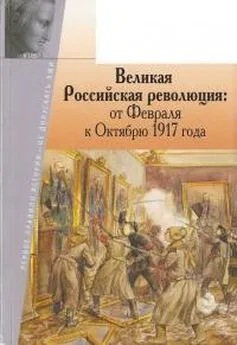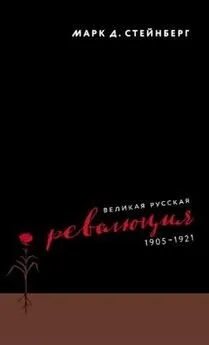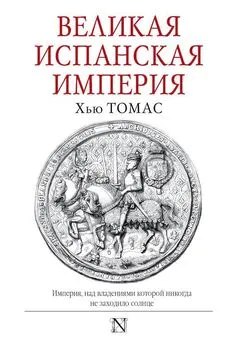Александр Шубин - Великая Испанская революция
- Название:Великая Испанская революция
- Автор:
- Жанр:
- Издательство:Книжный дом «ЛИБРОКОМ» aka URSS
- Год:2012
- Город:Москва
- ISBN:978-5-397-02355-9
- Рейтинг:
- Избранное:Добавить в избранное
-
Отзывы:
-
Ваша оценка:
Александр Шубин - Великая Испанская революция краткое содержание
В настоящей книге вниманию читателей предлагается комплексный анализ испанской революции и гражданской войны 1930-х гг. На основе обширных архивных материалов и современной испанской литературы автор реконструирует сложные обстоятельства истории Испании 30-х гг., когда эта страна оказалась в эпицентре мировой политики. Героями книги являются не только испанские политические деятели — от анархистов до фашистов, не только ведущие мировые лидеры того времени — Сталин, Чемберлен, Муссолини, Гитлер и другие, но и советские люди, которые приняли участие в революционных событиях. Многие материалы советских военных специалистов публикуются в книге впервые. Однако главным героем книги является все же испанский народ — расколотый, но переживающий «звездный час» своей истории, когда судьбы мира зависели от энтузиазма и действий простых людей труда.
Книга будет полезна исследователям истории 1930-х гг., преподавателям, студентам-историкам, а также всем, кому интересна история Испании, левых идей, социально-политических и международных конфликтов кануна Второй мировой войны.
Великая Испанская революция - читать онлайн бесплатно полную версию (весь текст целиком)
Интервал:
Закладка:
Up to 1938, the Soviet assistance counterbalanced the material and technical intervention of Germany and Italy, and the inter-brigades — partly the presence of the Italian military contingent. In the end of 1937 the Soviet assistance began to decline, while fascist assistance began to increase. The declining of the Soviet assistance was connected with disappointment of the Soviet government over inability of the new Negrin — Prieto government to achieve the promised breakdown in the war and complication of the international situation when the Spanish problem became less important in comparison with crises in China and Czechoslovakia.
From the second half of 1937 the Soviet assistance was provided to China as well, and the supplies to the East «were subtracted» from the supplies that the USSR could direct to Spain. China was more important yet for the USSR, than Spain — in fact this time the struggle was developed in immediate proximity from the Soviet borders. The peripheral containment of Japan was critical for the USSR during all the 1930s.
In spring-summer 1937 Republicans had an opportunity to recapture the initiative when Franco carried on a two-front war having concentrated forces in the North. Instead of focusing efforts on the victory and preparation of the offensive operation, the communists and social-liberals passionately struggled for power, and the Republic wasted time. In summer they conducted an operation angled towards their style, and it became clear that their methods were not better, but worse than Largo Caballero's war. In July-December, 1937 the chance to recapture the initiative was missed.
Nevertheless, the USSR continued to support the Republic which preservation (even without chance to win) drew Germany and especially Italy away from operations in the east of the Europe.
Handling the assistance that depended on a complex foreign policy situation, Stalin did not discontinue the struggle in Spain and strengthening of the control over the political system of the Republic. As experience of people’s democracies showed, when establishing communist regimes Stalin acted step by step even in much more favorable conditions.
In May 1937, the revolutionary government was replaced by the coalition having an interest in the decrease and then in the complete reduction of the current revolution. However, the communists which, though seemingly reasonable, were the strongest fraction of May regime and did not give up on an idea to transform Spain into the socialist country (in their understanding of a word). Negrin’s government started de-collectivization and simultaneously nationalization. It was not just deviation from the former revolutionary gains, but change of a vector of revolution from self-government to etatism, governmentalization. The regime which was formed in Spain in May 1937 constituted an early form of «people’s democracy» — the regimes widely spread in the East Europe after the Second World War. «People’s democracy» was the pro-soviet regime combining a liberal facade and authoritarian etatist content. The facade-core ratio of the regime depended on the foreign policy factors, and under the influence of the West the facade could overcome the core in certain conditions. The «People’s democracy» constituted not just displacement of allies by a communist «green cuckoo», but also the synthesis of two etatisms — communistic and social-liberal — on the pro-soviet platform.
The more decisive steps towards «People’s democracy» in Spain could be made after completion of the civil war provided that the international situation had changed. When the time was right, it would be possible to unite communists and supporters of the pro-soviet policy in the united party, and clean up the opposition.
Having missed an opportunity to gain a military victory over the frankists, the Republic had only one chance to survive — to stay the course till the beginning of the Second World War. Such chance appeared in September 1938 due to Sudetic crisis, it continued even in 1939 as the Republic had though small, but sufficient resource of resistance to stay the course for some months in the unpredictable situation of the pre-military Europe.
However, the leading political forces of the Republic including the Prime Minister Negrin came to the conclusion that the defeat was inevitable and began to search for ways to minimize the costs of such catastrophe. The communists involved in the global struggle against fascism were ready to hold the last-ditch defense. But they also had to operate in the wake of the policy of Negrin whose maneuvers caused mistrust in the increasing republican part, who were afraid to be left in the evacuation basket.
As a result, Casado rebellion commanded the widest political support including that from the opponents of unconditional surrender. The rebellion provoked a collapse of the Republic five months prior to the beginning of the Second World War.
Its collapse became one of the signals (even though far from the major) for Stalin to change the foreign policy strategy. The collapse of the Spanish Republic became the visible proof of People’s Front strategy and collective safety crash which Stalin accepted in 1934–1936 with so much pain.
In the end of the civil war Franco defined his position as neutrality to which he began to incline as early as in the troubled Munich days. At least in that way the Republic won — it bled frankism and didn’t allow it to involve Spain in the Second World War.
At the same time, the first battle against fascism took place in Spain, which would end up with crash of the fascist block in 1945.
The shift to industrial democracy was stopped not as a result of internal processes, but as a result of the violent suppression of the revolution. The military defeat taken by itself didn’t yet give grounds for the conclusion about crucial non-viability of these or those models. History provides many examples of military destruction of social and political structures which in the context of other military-political conditions gave an example of high efficiency and viability. The issue of syndicalist alternative viability was reduced to a question as to whether such society could exist by maintaining its originality with regard to the «capitalist» and «state-communist» models.
There is a strong probability that in those years the ideals of self-government and consecutive democracy could fight their way to become a reality only under the extreme circumstances. It is difficult to say whether the anarchist self-government could survive in the conditions of a quiet life. Experience of many countries in the West and «socialist» Yugoslavia showed that self-government and federalism in the conditions of industrially-bureaucratic society had been implemented more in manner than in matter, but nevertheless improved the living conditions. Global historical tendencies proved to be stronger than the ideas which were generated ahead of time. But, only reaching out beyond the horizon, it will be possible to overcome a vicious circle of routine.
The very development of non-capitalist system based on the principles of self-government instead of public administration made the Spanish revolution one of the key events in world history. It proved that the first word in a word-combination «social state» is the key one. Social transformations generated by a collapse of spontaneous capitalism could be implemented by strengthening the state — in an American, German, Italian and Soviet way. They could also be implemented by strengthening self-regulation structures of the society, such as trade unions, bodies of territorial self-government, democratic social movements. In short, in a Spanish way.
Regardless of the powerful laws of history development, much in the history flow direction depends on the «star moments» of the mankind, mentioned by Stefan Zweig. Social forces come to balance and then everything hangs on the «subjective factor». The outcome of «star moment» defines future for millions of people for decades forward.
The «star moment» of Spain history is the Great Spanish Revolution of the 1930s. That period of the Spanish history is an inexhaustible wealth of lessons for those who seek to transform the world on the basis of freedom and solidarity and who search for a real alternative to authoritarianism and capitalism.
Spain was in an epicenter of world politics and the destinies of the world depended upon it. Such role requires sacrifice. But at the same time it gives a life instead of wretched existence.
In a chain of events of the 1930s world politics, when the small caste of politicians shaped the future of millions of people, the events in Spain were distinct from other countries in that the history was made «from the bottom upwards», and the common people dared to settle their lives in their own way and not to take orders from «chiefs». Therefore, despite all blood and dirt which the history of Spanish Republic was not lacking, its leaders actually respected the will of common people. That doesn’t happen very often and stands high.
Список сокращений
НКТ (CNT, СНТ) — Национальная конфедерация труда
НК НКТ — Национальный комитет НКТ
ВСТ (UGT, УХТ, УГТ, ВСР) — Всеобщий союз труда
ФРЗ — Федерация работников земли
СИМ — Служба военной разведки
МАТ — Международная ассоциация трудящихся
ИСРП (PSOE, ПСОЕ) — Испанская социалистическая рабочая партия
КПИ — Коммунистическая партия Испании
ОСПК (PSUK, ПСУК) — Объединенная социалистическая партия Каталонии.
ИККИ — Исполнительный комитет Коммунистического интернационала.
ПОУМ (POUM) — Рабочая объединенная марксистская партия
ЭРК — Республиканская каталонская левая.
ЭК — Каталонская левая.
НСО — Национальный совет обороны.
Примечания
1
См.: Шубин А. В. Социализм: «золотой век» теории. М., 2007. С. 345–347.
2
Connelly Ullman J. The Tragic Week. A Study on Anticlericalism in Spain. 1875–1912. Cambridge, Massachusetts, 1968. P.323.
3
Cit.: Connelly Ullman J. Op. cit. P.88.
4
Connelly Ullman J. Op. cit. P.98.
5
Ibid. P.95, 101.
6
Гарсиа Х. Диктатура Примо де Ривера. М., 1963. С.29; Испания в цифрах. М., 1936. С. 41–44.
7
Эренбург И. Г. Люди, годы, жизнь. М., 1963. С.303.
8
Там же.
9
Gillespie R. The Spanish Socialist Party. A History of Factionalism. Oxford, 1989. P. 9–11.
10
В этом году были приняты правила проведения легальных стачек, но они были обставлены таким количеством условий, что рабочие были просто вынуждены проводить незаконные стачки.
Читать дальшеИнтервал:
Закладка:
